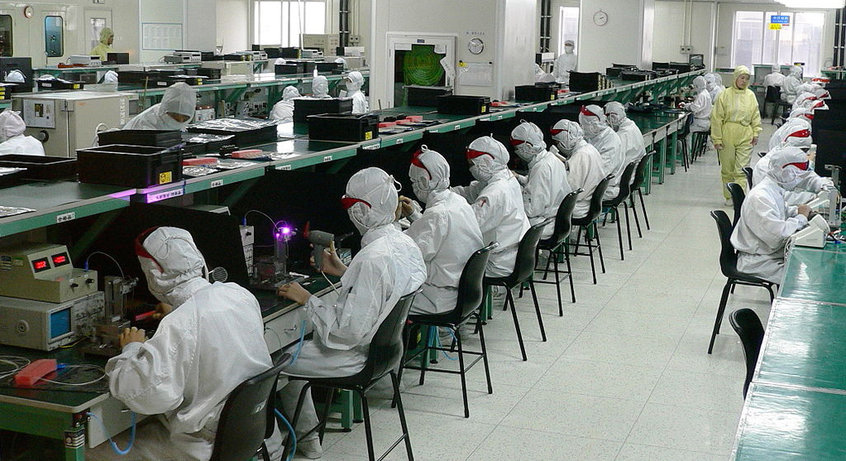OSell, a company based in Chongqing and Hong Kong, has opened what it is billing as Europe’s largest cross-border e-commerce park: a 4,300 square metre permanent exhibition hall in Warsaw.
The aim is to make it more convenient for Polish buyers to access the Chinese market, and thereby stimulate demand for its manufactured goods. The effect may be to initiate international trade based on direct purchasing over the internet, and to usher in the era of the modern Silk Road. Â
Liu Wenting, the chief executive of OSell, told China Economic Net that there were a number of “pain spots” that Polish buyers of all sizes had to endure if they wanted to do business with Chinese partners. He listed these as overcoming language and cultural barriers, establishing trust and clearing customs. The e-commerce park is intended to avoid all of these difficulties.
Nanny service
(The Silk Road will) help Poland to be recognised by Chinese consumers and to enter into their market based on food, drinks, luxury items and the products of our advanced manufacturing industry– Jerzy Rzymanek, president of the Poland Import and Export Association
To do this, Osell is to set up local service teams who can handle the paperwork and act as a bridge between the customer and the factories in China’s vast manufacturing complexes. Information on what can be bought is available for inspection in a physical warehouse of samples, orders are fed back using a cloud data platform and OSell acts as a kind of guarantor for the deal.
If required, OSell can provide what it calls a “nanny service” for inexperienced buyers, whereby it will advise them throughout the commercial process, including offering legal advice, help with tax clearance, financial consulting, advice on logistics and an after-sales service.
To illustrate the system in action, China Economic Net gives the example of Citic, a small Polish retailer of soft furnishings and household goods. In the past, the company’s general manager would come to Guangzhou from Warsaw every few months and spend more than 10 days examining lines in China’s wholesale markets, occasionally leaving empty handed.
Jerzy Rzymanek, president of the Poland Import and Export Association, said: “The launch of the China-Poland cross-border e-commence industrial park ends these worries. What’s more, the entirely new business model has the potential to realise the reciprocal benefits that are essence of ‘Belt and Road’ initiative.”
Geopolitics
It is easy to see the benefits of opening the Polish market for Chinese exporters. China already has a 10-to-one trade imbalance with Poland, having overtaken Russia as the number two exporter in 2014, and Poland is the largest recipient of Chinese investment eastern and central Europe.
Over the past 12 years, the volume of trade between China and Poland has grown sixfold, to a little over $17bn. Alongside the strengthening of their economic relationship, the two have formed a political bond that is unusual in eastern Europe, a development that became apparent last year when President Xi Jinping called off at Warsaw on his trip to Serbia, which is China’s closest partner in Europe.

A Shenzhen electronics factory (Wikimedia Commons)
It was also apparent when Poland became the only state in the region to join China’s Asian Infrastructure Bank. As well as being potentially an important player in development finance, the bank offered a convenient test of governments’ attitudes to the rise of Beijing as an international actor.
Besides the economics and politics, Poland has a special geographical significance for China: all the transport routes that will make up the new Silk Road will pass through it on their way west: this is partly an accident of geography – Slovakia, Hungary and northern Romania are blocked off by the Carpathians – and partly that Poland is the eastern gateway to western Europe.
The reciprocal benefits are intended to be another permanent “online trade hall and overseas warehouse” at the other end of the Silk Road that will, as Rzymanek says, “help Poland to be recognised by Chinese consumers and to enter into their market based on food, drinks, luxury items and the products of our advanced manufacturing industry”.
The effect of this experiment with wholesale international e-commerce, if it is successful, will be to stimulate the development of the trans-Asian transport and economic corridor that China’s grand strategy sees as a fruitful area for its investment capital, a source of raw materials and another market for its manufactured goods.
It will also make it easier and cheaper for western retailers to access Chinese goods: a sale can be arranged in seconds using a smartphone app and transported in little as 10 days from one country to the other.
Wu Hao, the deputy director of high-tech industries division of China’s powerful National Development and Reform Commission, told China Economic Net that the micro-commerce will now be complemented by intergovernmental agreements to strengthen online Silk Road cooperation and create institution for cooperation between the two countries.
Further Reading:






